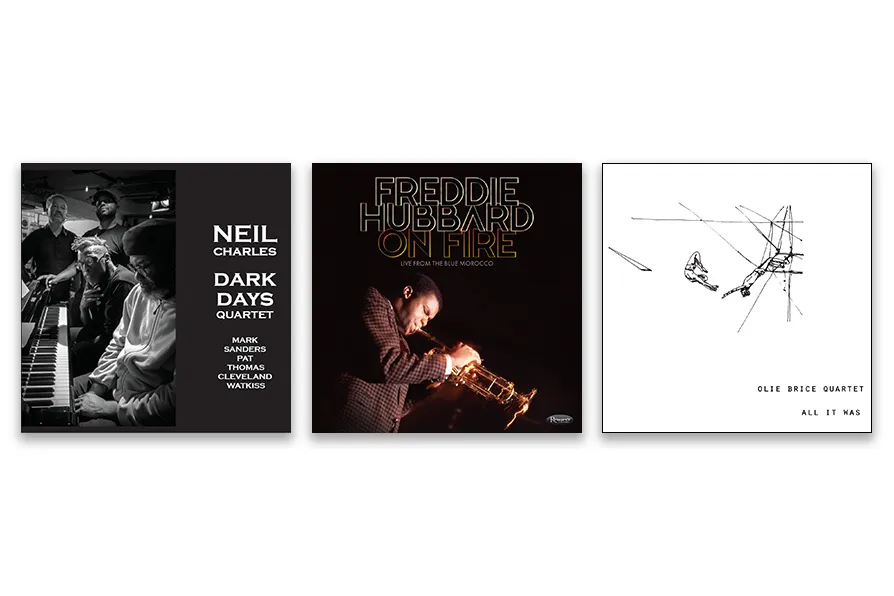The book feels like a writer working within his limits and not breaking any new ground, believes KEN COCKBURN
Reviews of the Neil Charles Quartet, the Freddie Hubbard Quintet, and the Olie Brice Quartet


Neil Charles Quartet
Dark Days
(Jazz in Britain Records)
⭑⭑⭑⭑⭑
THERE aren’t many jazz suites that in a profound and empathetic way salute the works of great writers. Ellington’s Such Sweet Thunder Shakespeare suite is certainly one, as are Johnny Dankworth’s What the Dickens? and Charles Mingus’s salute to Langston Hughes.
Here’s another: Dark Days goes back to the James Baldwin essays on US racism from 1965. Bassist Neil Charles, drummer Mark Sanders, pianist Pat Thomas and vocalist Cleveland Watkiss perform as if the years didn’t exist, their sonic artistry exposing the now-times passion and nuances of Baldwin’s every word.
Read him and hear the sounds, as simultaneously as you can. How much has changed, how much remains the same! We hear the names down the years as they play and we listen: Kelso Cochrane, David Oluwale, Blair Peach, Stephen Lawrence. Dark days yes, but the music tells of hope and light to come. It’s up to all of us.
Freddie Hubbard Quintet
On Fire: live at the Blue Morocco
(Resonance Records)
⭑⭑⭑⭑☆
TWO CDs’ worth of the insurgent trumpeter Freddie Hubbard here in his finest years, playing in Bronx’s Blue Morocco in 1967.
With tenor saxophonist Benny Maupin, pianist Kenny Barron, bassist Herbie Lewis and drummer Freddie Waits, he burns through several of his own tunes like Crisis, Up Jumped Spring and Breaking Point, and turns also to familiar melodies like Summertime and Bye Bye Blackbird to show what a nonpareil of the American Songbook he also was.
His powerful lip knows no bounds: hear how he rips through Crisis, his consciousness knowing one when he hears it in a year when civil rights and anti-Vietnam war protest reached a summation. Hubbard’s horn voices it all, its notes blazing across the United States, east to west.
My personal favourite track is the crackling finale, Breaking Point, Hubbard’s signature theme. How he blisters the Bronx air, blowing sonic flames.
Olie Brice Quartet
All It Was
(West Hill Records)
⭑⭑⭑⭑⭑
THE new album by bassist Olie Brice’s Quartet is both deeply moving and beautifully played, expressing “the grief and pain of losing my father tangled and fused with horror and despair at the genocide in Palestine.”
This elision of the personal and universal is the heartsong of true music and shared by tenor saxophonist Rachel Musson, pianist Alexander Hawkins and drummer Will Glaser.
Musson plays with a dancing melodic edge, Brice with a plunging heartbeat and Hawkins is Hawkins — ever-inventive and provocative — while Glaser’s percussive flair is everywhere. To me the most memorable track is the elegiac Morning Mourning — emotion moulded as sound: a listener’s true lasting gift.
The compelling final track is And We Dance On The Firm Earth, the words of the great Caribbean laureate Edward Brathwaite of Barbados. Artistry of words and sounds mesh in a unity of hope, the signature of the entire album.










